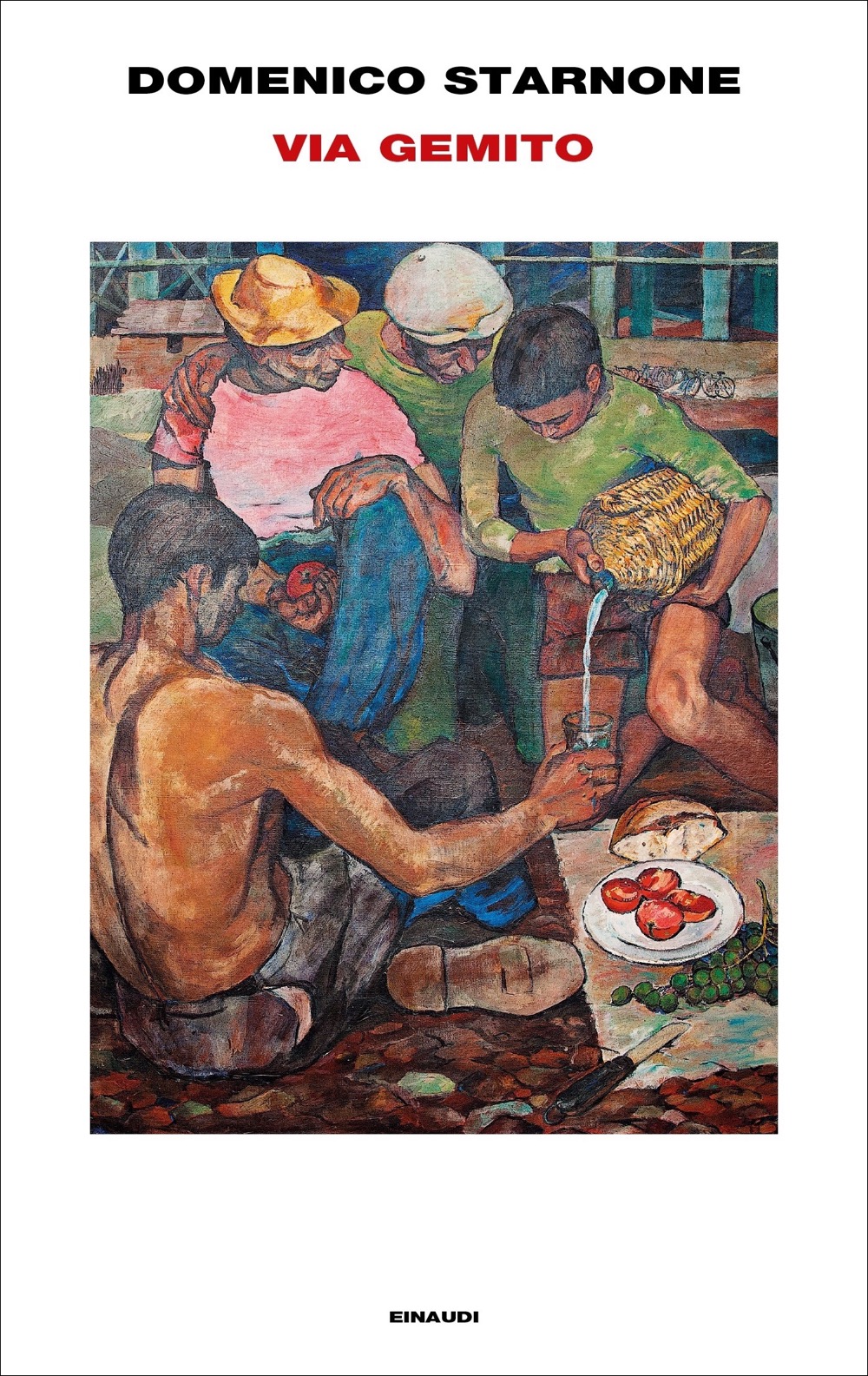
One day, a few years ago, Domenico Starnone himself came to my house for a visit. He brought his Via Gemito to my Via Luigia Sanfelice, so to say.

My position is all wrong. The water will forever spill onto the tomatoes, the plate, the cloth. My father placed me in a position where, even with Luigi reaching as far as he can, I will never be able to pour the water into his glass.

“Via Gemito” is a bridge. A bridge between two careers, two narrative approaches, two ways of delving into marriage and intolerance, into the defects of love and disappointed expectations.

Földényi’s The Glance of the Medusa is an astounding encyclopaedia of ancient and early Christian thought. It invites the reader on a historical, mystical and mythical journey encompassing ancient Greek and Egyptian religions as well as the early Christian Mystics and Gnostics to examine experiences bringing human beings and (the) God(s) into such extreme proximity with each other that one might well merge into the other.

The appearance of this collection is a statement of intervention into the canon of Latin American poetry. Its contextual materials, which include Weaver’s description of meeting Magda Portal in Berkeley in 1981, attest to a long lineage of intentional stewardship of women’s poetics inspired by Portal’s own fierce advocacy, beginning with the book’s initial publication in 1927.

When Jan J. Dominique published her memoir Wandering Memory in French in 2008, eight years had gone by since her father’s assassination. On April 3, 2000, Jean Léopold Dominique was gunned down in front of the radio station he owned and operated since the 1960s. The New York Times reported on Dominique’s death, a state funeral was held, and Haitians living in the country and abroad went into a period of collective mourning.

Alaoui’s novel, as hilarious as it is political, is a testament to the fact that literature does not have to be depressing or solemn to deliver a powerful message. Like Ramadan, I hope more publishers will invest in translating playful books that appeal to diverse readerships while defying stereotypes and expanding perspectives.

By Anna Levett Several times in Under the Dome, Jean Daive’s elliptical, poetic memoir about his friendship with the Jewish German-language poet Paul Celan, a net bag makes an appearance. I imagine it’s the kind of bag in which you would carry fruits or vegetables that you’d bought from a market—a bag made of mesh […]

By Samuel Martin Holding the latest volume of notes by the Swiss poet and translator Philippe Jaccottet, turning it over in one’s hands, one’s first impression is indeed of volume and bold color; it is another of the lavish editions that Seagull Books have made their calling card in recent years. One’s second impression, having […]

By Andria Spring “Are we at war, Papa?” “What makes you think that?” “I don’t know, all these soldiers outside the shops.” “Then it must be war.” “But people are shopping in the sales.” “So we can’t be at war.” “The police are checking handbags and ID cards.” “That means it’s war.” “But there are […]

Trigger warning for rape, sexual violence, femicide, and gender-based violence. Although it has been more than two years since its publication, I am regularly given a reason to revisit “A Stench That Won’t Subside,” an article on sexual violence by Kosovo-Canadian lawyer Hana Marku. Marku wrote this piece in February 2019, as Kosovo and Albanian […]

By Alex Valente Caterina Bonvicini’s The Year of Our Love, translated by Antony Shugaar, is the story of Olivia and Valerio, who meet and grow up together in the same house while belonging to different families and class, who lose each other and find each other again several times, and who maintain a bizarre romantic […]

Nataliya Deleva’s Four Minutes is a profound, heart-breaking meditation on the notions of home and homelessness, with their myriad manifestations and implications in our contemporary world. An orphanage in post-communist Bulgaria provides the physical and psychological coordinates of the narrator’s existence and of the book’s loose narrative frame. Called simply and anonymously “the Home,” this […]

By Barbara Halla Is it intertextuality? Or is it perhaps that, both consciously and subconsciously, the books I pick tend to broach similar themes? Russian poetess Maria Stepanova would say that I am trying to find patterns where there are none—because like all other human beings, I take comfort in meaning, even if I have […]

